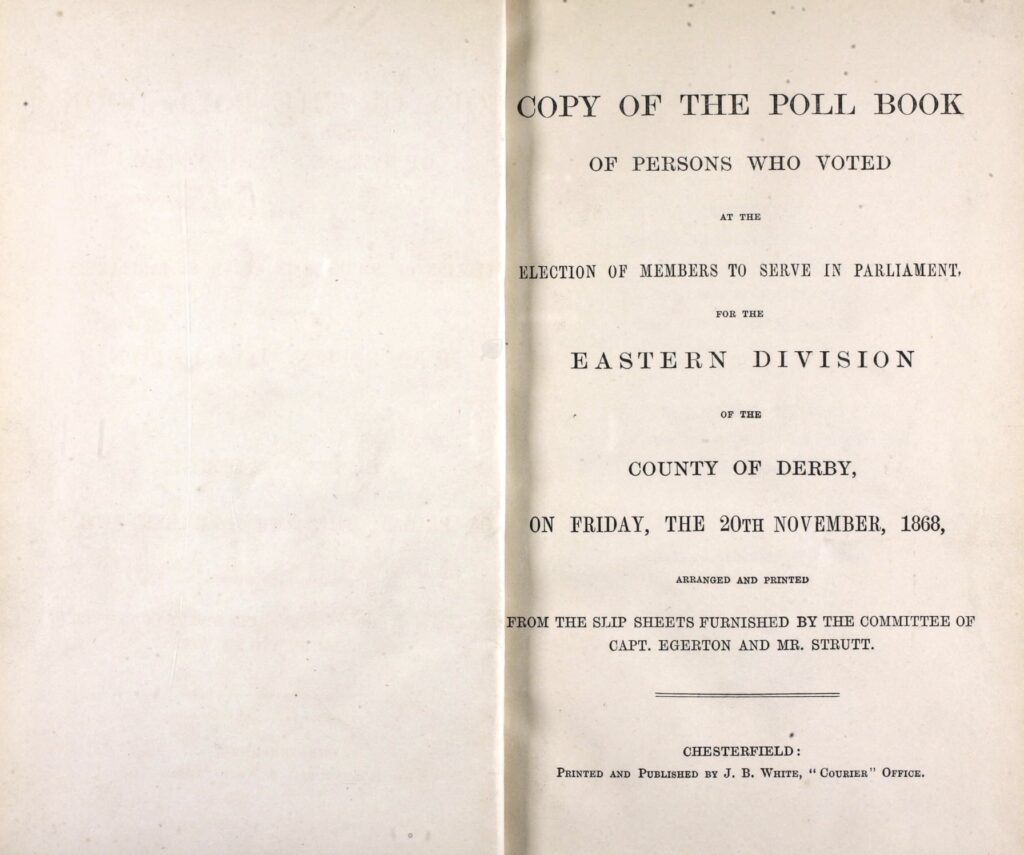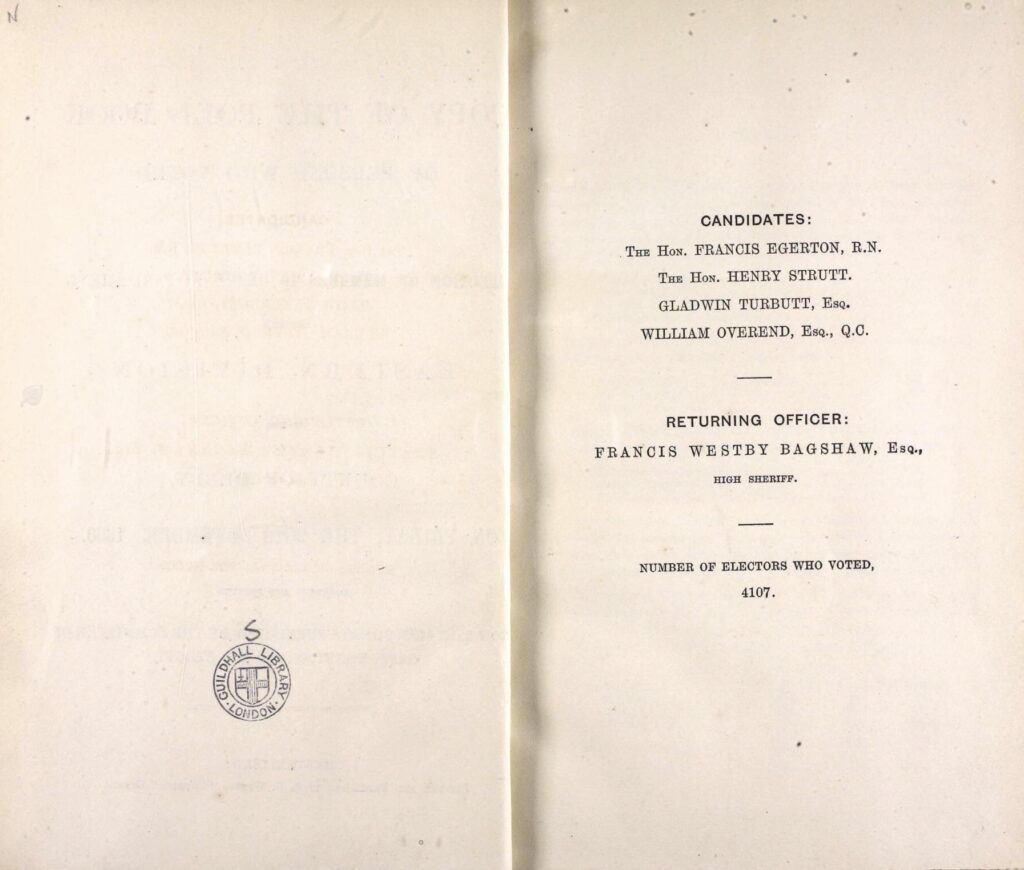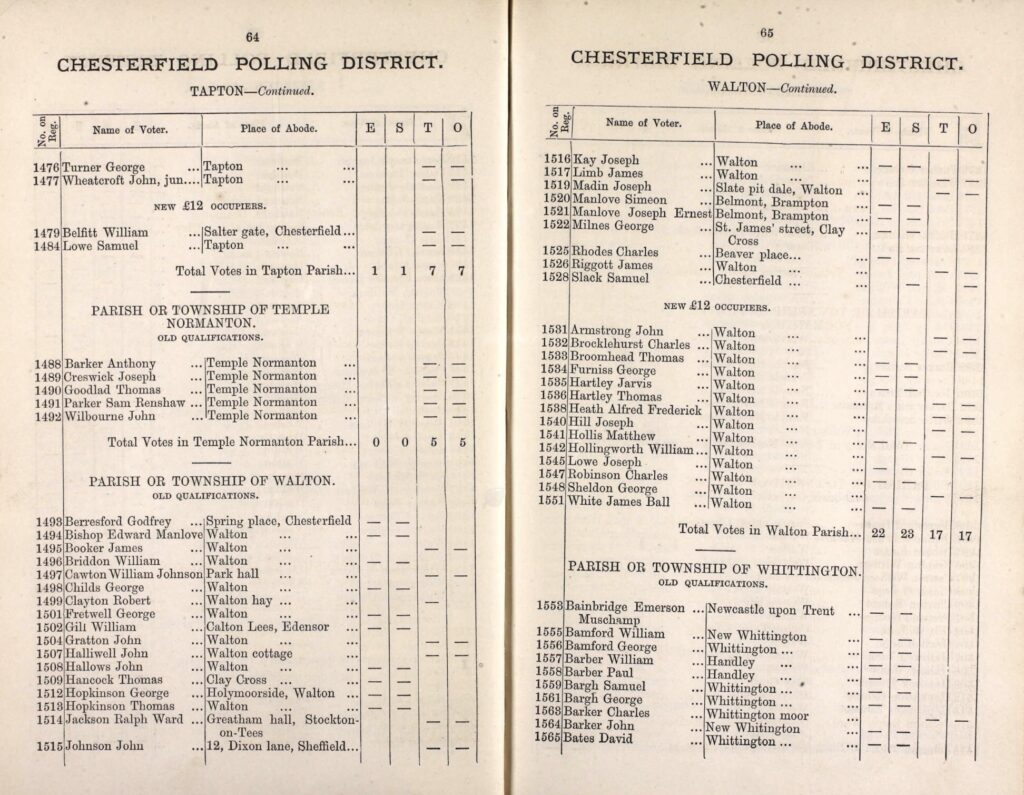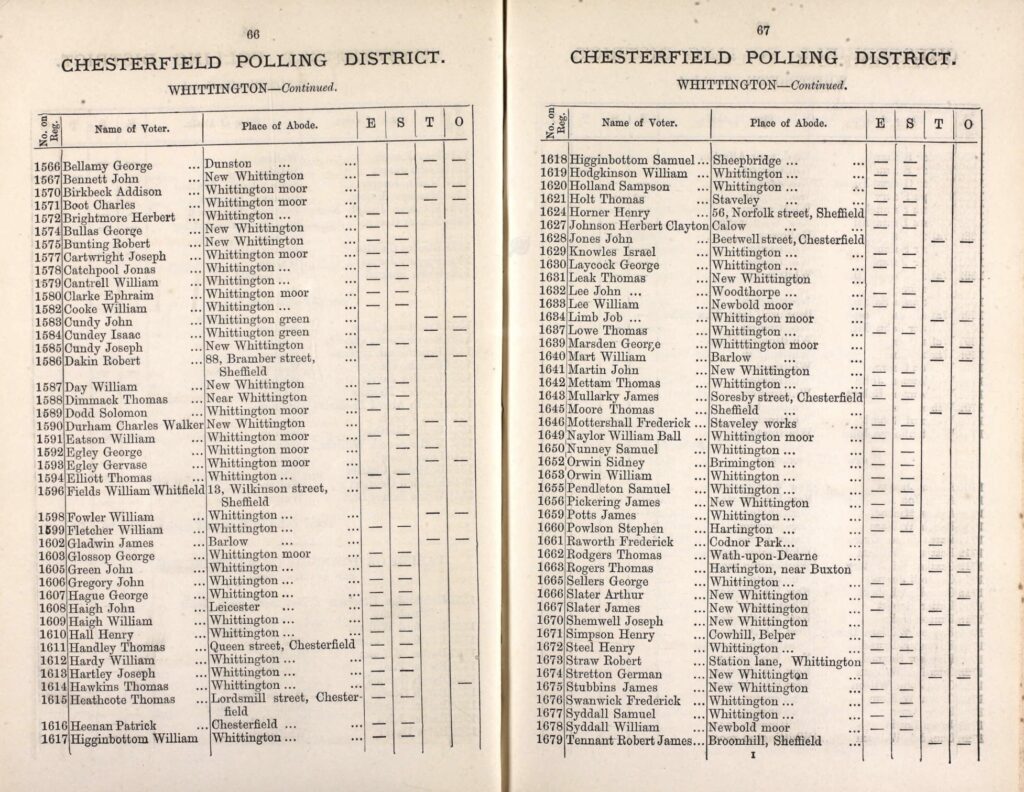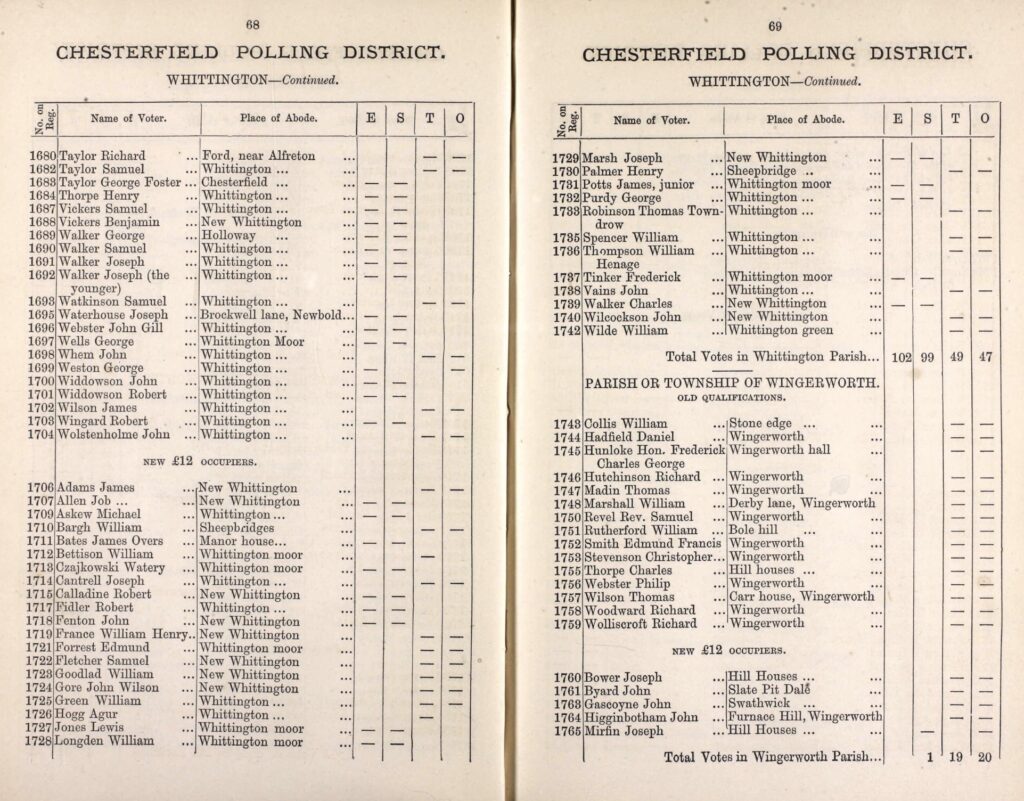Poll books list the men who voted in parliamentary elections and the candidates for whom they voted. This was public knowledge because men voted in public until the secret ballot was introduced in 1872.
Poll books for county and borough seats list the names of electors, their parish of residence and how they voted. Poll books may also state an elector’s exact address and (if different) the address of the property that gave him the right to vote. Within a poll book, the list of electors may be arranged by parish, ward, hundred or township.
In 1866, all voters had to be male adults over 21 years of age. The right to vote was still based upon a property qualification. By the early 1860s around 1.43 million could vote out of a total population of 30 million.
In 1867, the Conservative government introduced the Parliamentary Reform Act. This increased the electorate to almost 2.5 million.
However, the call for universal manhood suffrage or ‘one man, one vote’ was still resisted by Parliament and the second Reform Act, passed in 1867, was still based around property qualifications.
The most important change was the granting of the vote to occupiers in the boroughs (people who rented properties rather than owning them) and, as a result, the electorate in some of the newer towns in England and Scotland increased dramatically.
There was no question of campaigning for the right to vote for women too. They were still excluded.
The 1867 Reform Act:
- granted the vote to all householders in the boroughs as well as lodgers who paid rent of £10 a year or more
- reduced the property threshold in the counties and gave the vote to agricultural landowners and tenants with very small amounts of land
Men in urban areas who met the property qualification were enfranchised and the Act roughly doubled the electorate in England and Wales from one to two million men.
Below is the entry for Old Whittington from the 1865 General Election Poll Book
Derbyshire East was won by Hon. Francis Egerton & Hon. Henry Strutt both representing the Liberal Party.
